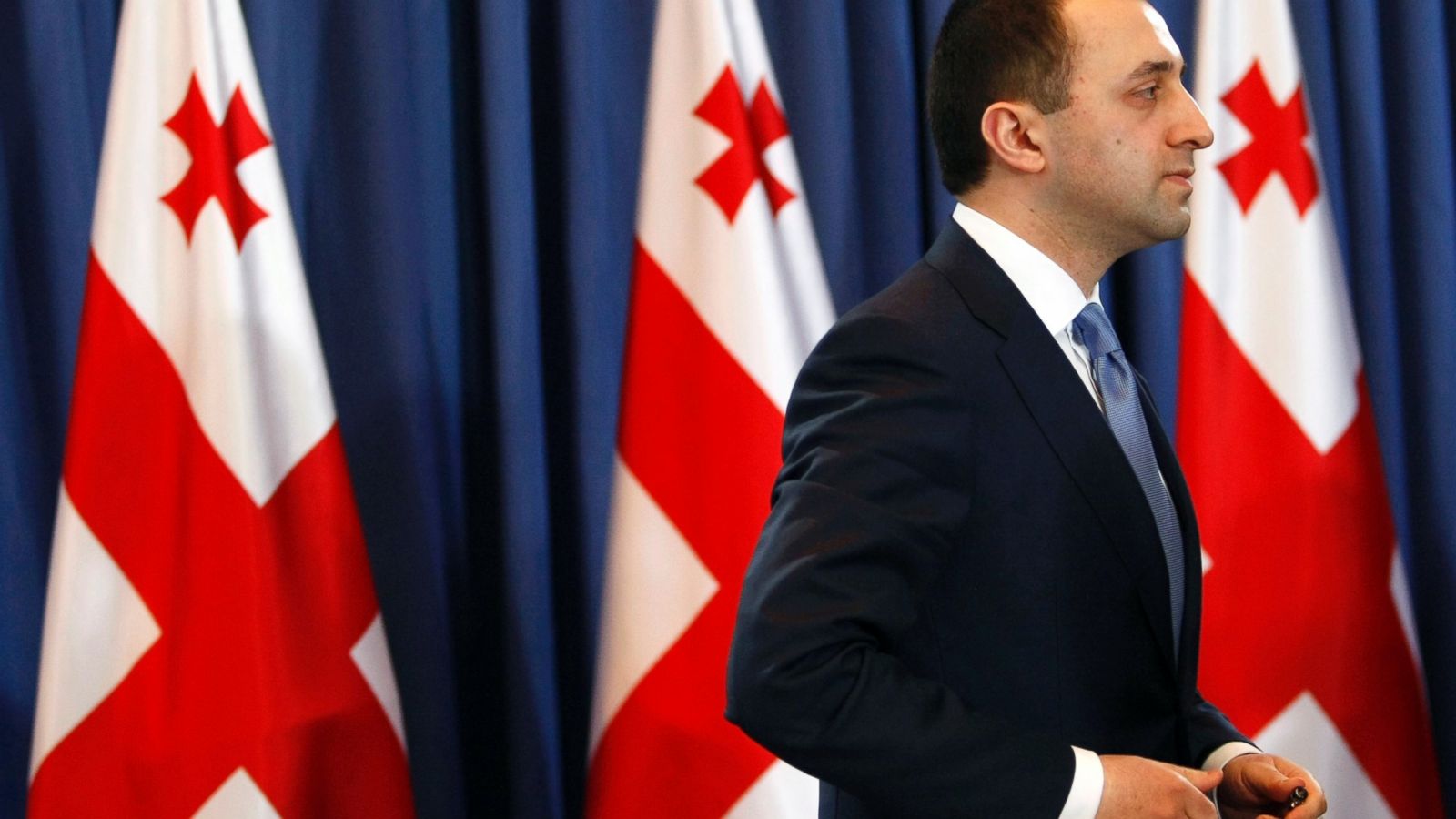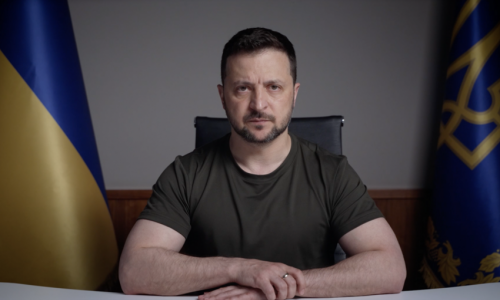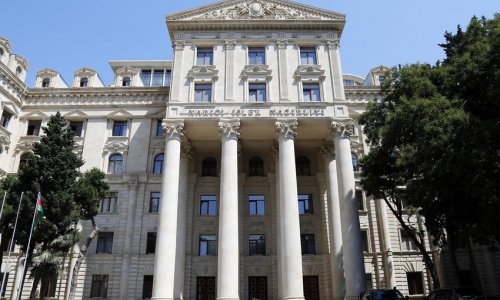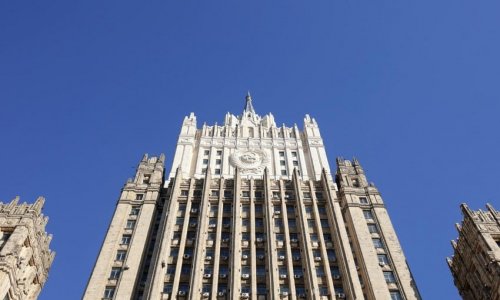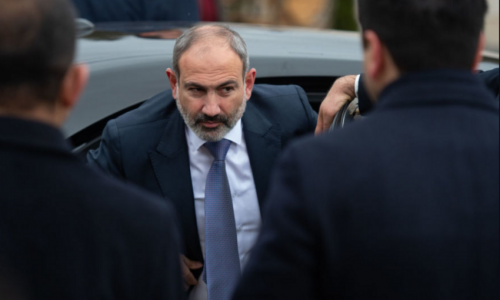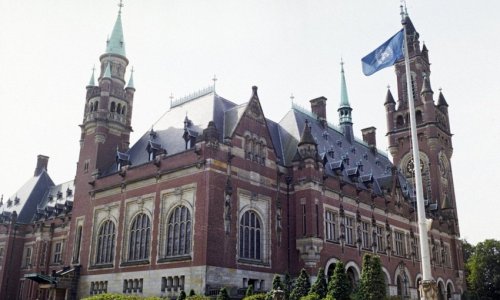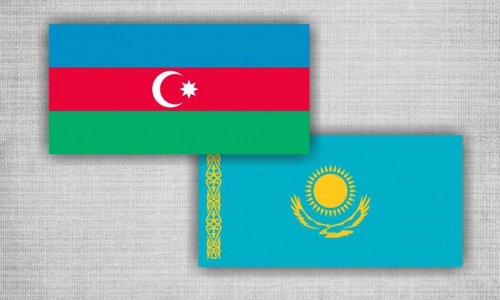Georgian Prime Minister Irakli Garibashvili, 33, announced his resignation on December 23, without revealing his motives for doing so.
Commentators have suggested a variety of explanations, focusing primarily on the precipitous decline in value of the national currency over the past 13 months, the similarly steep decline in popular support for the ruling Georgian Dream (GD) coalition, and Garibashvili's tense and difficult relations with President Giorgi Margvelashvili.
Opposition politicians, however, are convinced that Garibashvili was coerced to step down by his predecessor, billionaire philanthropist and GD founder Bidzina Ivanishvili. Ivanishvili served as prime minister for just over a year after the October 2012 parliamentary elections, stepping down in November 2013, but many Georgians believe he continues to call the shots from behind the scenes.
David Darchiashvili of the former ruling United National Movement (ENM) commented that Garibashvili's resignation is further evidence that "the country has an informal leader."
Former parliament speaker Nino Burjanadze, who heads the extra-parliamentary democratic Movement-United Georgia, said no one believes the "fairy tale" that Garibashvili resigned of his own volition.
Certainly circumstantial evidence suggests that Garibashvili's decision may have been spontaneous. Just two days earlier he delivered a report on GD's achievements during its three years in office, noting in particular reforms of the Interior Ministry (which he headed from October 2012 to November 2013) and the prosecutor's office, and strengthening the independence of the judiciary. He pledged that "we shall work without respite to become the kind of government that our people deserves."
When rumors of Garibashvili's impending resignation surfaced earlier on December 23, his office denied them. Giorgi Volsky, deputy head of the GD parliament faction, admitted that "the issue is being discussed," adding, however, that "it's not the case to say it's a done deal."
Garibashvili's live TV announcement of his resignation was originally scheduled for 6 p.m. local time, but then postponed for two hours, suggesting either uncertainty on his part or possibly resistance to pressure. In his five-minute address, he said that during his tenure as prime minister, "peace and stability, legality and humaneness were established.... We gave back freedom and dignity to our citizens. Due to the large scale reforms and unprecedented governmental programs implemented by us, we laid a firm foundation for economic and social welfare."
He also recalled the signing in 2014 of an Association Agreement with the European Union and the European Commission's announcement last week that Georgia has fulfilled all the requirements for visa-free travel to most EU member states.
Possibly with a view to quashing speculation that he had been pressured to quit, Garibashvili affirmed that everything he has done in his life has been an expression of free will. He said Ivanishvili had set an example by choosing the most appropriate moment to resign. Stressing that it had been an honor to serve as prime minister, Garibashvili pledged to remain "a faithful soldier of the motherland."
As indicated above, GD's track record was somewhat less stellar than Garibashvili portrayed it, in particular with regard to the economy. GDP growth for the first 10 months of the year was just 2.8 percent, precisely half the figure for 2014 and in stark contrast to the government's projected 5 percent growth rate for 2015 as a whole. The national currency, the lari, lost 37.7 percent of its value vis-a-vis the U.S. dollar between September 2014 and September 2015.
GD's failings, according to former Defense Minister Irakli Alasania, whose Free Democrats are now in opposition to the government, are primarily the result of appointing to leading posts persons without the intelligence and imagination to implement the coalition's preelection promises, such as stimulating economic growth and reducing unemployment.
That failure, Alasania argued, is the primary reason why much of the population has lost faith in GD, and in politicians in general. He predicted that "people will no longer vote lightly for anyone."
Georgian Development Fund executive director Vano Mzhavanadze similarly referred to GD's "profound lack of popular support" and said it urgently needed to improve its public image by implementing change.
Following the announcement of Garibashvili's resignation, parliament speaker Davit Usupashvili publicly explained that the constitution requires that the parliament majority name its new prime minister within seven days, which it will probably do on December 25. The president formally requests the full parliament to approve him.
GD parliament faction head Zviad Kvachantiradze was quoted on December 24 as identifying four possible candidates to succeed Garibashvili. They are Foreign Minister Giorgi Kvirikashvili, who served from 2006-2012 as director-general of Ivanishvili's Cartu Bank; Economy Minister Dimitry Kumsishvili, a former Cartu Bank deputy general director; Minister of Health David Sergeenko, also a close associate of Ivanishvili; and Mamuka Bakhtadze, CEO of Georgian Railways.
Whoever is chosen will, however, be only a caretaker prime minister, given that parliamentary elections are due in October 2016. A recent opinion poll conducted by the U.S. National Democratic Institute suggests that the outcome of that ballot is wide open: just 18 percent of respondents said they would vote for GD if elections were held tomorrow; 12 percent named the ENM and 7 percent Alasania's Free Democrats.
Philosopher Zaza Piralishvili has predicted that GD and ENM will "very probably" not be the main two forces contesting the ballot.
(RFE/RL)
www.ann.az
Follow us !

